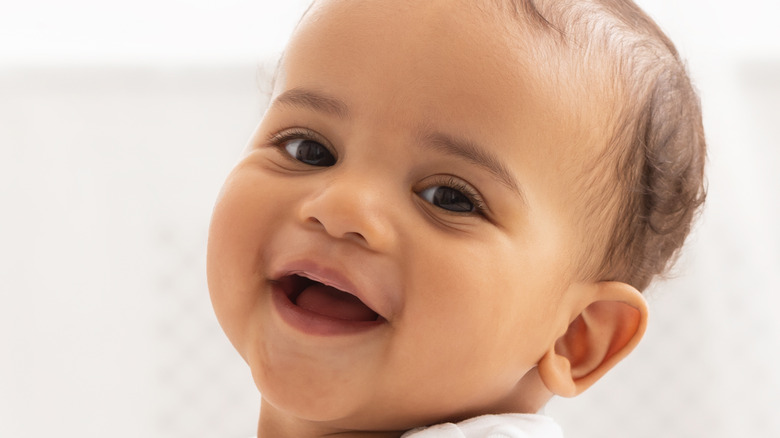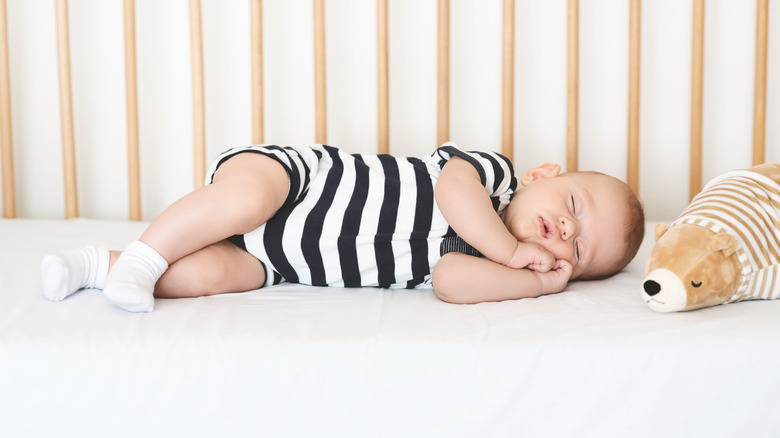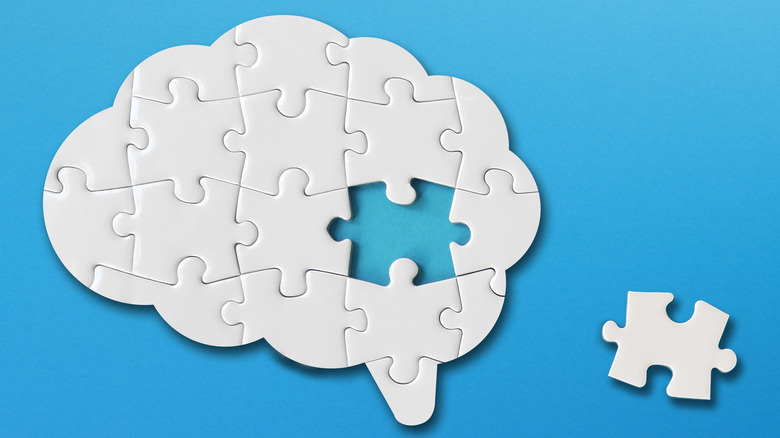Your Very First Childhood Memory May Be Completely False
As we age, childhood memories can get a bit hazy due to a psychological concept known as childhood amnesia (via NPR). Despite this, many of us can recall some of our earliest childhood memories. Maybe you remember being fed from a bottle or being rocked to sleep. Unfortunately, according to psychology, your first memory might not even be real. How? It turns out that our brains are really good at making things up.
A study published in the journal Memory found that one-third of the participants had false childhood memories of events researchers had convinced them were real. In other words, the participants believed they had really experienced certain events when they were younger, but they were entirely made up. Not only did one-third of the participants have false memories, as many as half showed evidence that they at least believed these fake events were real, even if they didn't believe they had attended them. But what does this have to do with our very first memories? This study shows how easily the human brain can become convinced of certain things, which can include memories of early childhood.
Some people claim they have memories as far back as just one year old
While most past research has indicated that the earliest memories we have are from ages 3 to 3.5 years old, a 2018 study published in Psychological Science found that nearly 39% of its 6,600 participants claimed to have memories as early as age 2 or younger. Even more puzzling, some participants claimed to have memories from even younger, remembering events from when they were less than a year old.
So how could participants of this study have memories from ages much younger than expected? As Shazia Akhtar, first author of the study, puts it, "we suggest that what a rememberer has in mind when recalling fictional improbably early memories is an episodic-memory-like mental representation consisting of remembered fragments of early experience and some facts or knowledge about their own infancy/childhood" (via Psychological Science). Essentially, the researchers concluded that these events from early childhood weren't real, but were instead based on information the participants had about their childhood, such as favorite toys, family photographs, stories told by relatives, and so on.
New research has found we can remember more than originally thought
So what does all this research mean for your earliest childhood memories? The likelihood that your brain made it all up based on outside information is fairly high. But don't worry, all hope for your early childhood memories is not lost. According to a 2021 study, decades worth of data suggest that some people can actually remember things from when they were as young as 2.5 years old. These memories are not just false memories, but real childhood memories. So why didn't psychologists discover this sooner?
The author of the study, Dr. Carole Peterson, believes that researchers didn't make this discovery sooner because they weren't looking at enough data. According to Dr. Peterson, "when you look at one study, sometimes things don't become clear, but when you start putting together study after study and they all come up with the same conclusions, it becomes pretty convincing" (via Science Daily). Her research in this area is ongoing, but her extensive digging into memory data has helped childhood amnesia psychologists help their patients remember repressed memories from early childhood. So while your first childhood memory may be false, according to Dr. Peterson, many of your other early childhood memories may just be very real.


